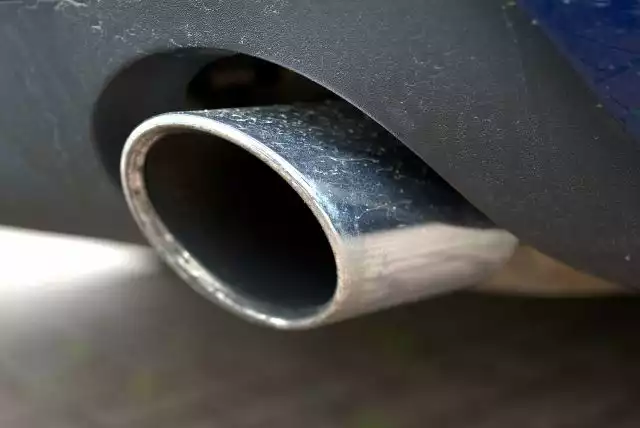
Unsurprisingly, China becomes the biggest contributor to advancing emissions around the world, complied with very closely by the USA. Nonetheless, VesselBot’s data exposes that exhaust patterns differ substantially even within these nations, emphasizing the requirement for port-specific and route-specific emission decrease strategies.
VesselBot’s information reveals that the vessels carrying out these short-range, high-intensity voyages are typically older, with 24% being more than 20 years old since Might 2024. These ships commonly take a trip at reduced rates (averaging 13 knots) and perform excessive maneuvering in and out of ports, substantially lowering overall trip effectiveness and raising CO2 exhaust intensities.
The record measures China’s payment at 140 million kg of carbon dioxide, while the U.S.A. follows with 110 million kg. Especially, the USA saw 4,931 voyages to and from its ports in the first quarter of 2024 alone. This degree of information permits targeted interventions at the busiest ports and along one of the most frequently taken a trip courses.
Constantine considering that 2015 has established and taken care of VesselBot, a modern technology business that gives the market with one of the most exact GHG Exhausts Checking System for the main supply chain transportation modes (vessels, airplanes, trucks, and trains).
A childhood in Kansas, university in The golden state where she satisfied her early mentor, Leigh Lytle spent 15 years in the Federal Book Financial System and is currently the 1st female Head of state & CEO of the Equipment Leasing & Money Organization. Join us to hear about her aspiration to be an excellent leader.
This granular evaluation enables more targeted and effective exhaust decrease strategies. As an example, the record exposes that Cayman Islands flag vessels show the most affordable average intensities at 95.4 WTW g CO2e/TEU-km, despite having only 3 ships in their fleet. Such understandings enable an extra nuanced strategy to discharges reduction, focusing on fleet structure and functional effectiveness instead of just overall fleet dimension.
The report’s findings highlight the relevance of vessel-specific and voyage-specific data. The connection in between speed and exhaust intensity differs significantly in between vessels, even on comparable paths. In a similar way, as opposed to thinking that all vessels lug 70% of their complete TEU capacity on every trip, which brings about misstatement of emissions, having a more accurate utilization element can yield even more exact computations. This degree of detail allows carriers to optimize their operations using granular-level data.
With worldwide shipping accountable for about 3% of worldwide greenhouse gas emissions (according to World Economic discussion forum), accurate tracking and reduction of these exhausts have never been even more essential. In contrast to prominent belief, the record’s most surprising discovery is that short-range voyages, not long-haul trips, are the greatest contributors to international exhaust strength. The report offers a nuanced view of emissions by flag state, moving beyond simplistic total exhausts computations. Such insights permit for a much more nuanced approach to emissions decrease, concentrating on fleet make-up and functional effectiveness instead than just overall fleet size.
In the face of escalating climate problems, the maritime industry stands at a crossroads. With global delivery in charge of concerning 3% of worldwide greenhouse gas exhausts (according to World Economic online forum), precise tracking and reduction of these exhausts have never ever been more essential. VesselBot’s current “Decoding Maritime Emissions” report uses groundbreaking insights into this intricate concern, highlighting the transformative power of primary information in guiding the sector towards a lasting future.
The report offers a nuanced sight of discharges by flag state, moving beyond simplistic complete exhausts estimations. While Liberia boasts the biggest fleet and highest possible total carbon dioxide emissions, its per-vessel strength is relatively low, showing great trip and vessel efficiency. Remarkably, the Faroe Islands, with just 5 ships, shows the highest possible average strength at 472 WTW g CO2e/TEU-km.
The record’s comprehensive analysis discloses that a lot of these high-intensity voyages happen within Asia, intra-America, and the Mediterranean Sea. Remarkably, the ports involved in these trips frequently do not rank amongst the globe’s leading 20 busiest ports, highlighting an important area for emission decrease efforts that may or else be ignored.
As opposed to common belief, the record’s most startling revelation is that short-range voyages, not long-haul journeys, are the greatest factors to international exhaust intensity. These trips, averaging simply 1,669 kilometres, usually surpass 1,000 WTW * g CO2e/TEU-km in intensity. This searching for tests conventional wisdom and underscores the immediate requirement for optimized route planning and boosted port management, especially for feeder vessels under 3,000 TEU capability.
Showcase your brand and promote your business to our very targeted audience. We provide comprehensive Google Analytics with quantifiable ROI to assure success. Send your material for testimonial by our Editorial team that will contact you to go over the job even more.
As the maritime market grapples with the International Maritime Company’s objective of a 70% emission reduction by 2050, the insights from VesselBot’s record ended up being important. By leveraging precise primary data, shippers and various other market stakeholders can precisely track their environmental impact, recognize inefficiencies, and carry out targeted operational optimization reduction approaches that do not need any kind of CAPEX financial investments.
Constantine Komodromos– Founder & CEO, VesselBot Constantine is an Other member of the Association of Chartered Licensed Accounting Professionals (FCCA) UK and has greater than 23 years of working experience in numerous multinational companies and constructing startups.
Instead of assuming that all vessels lug 70% of their overall TEU capability on every trip, which leads to misrepresentation of emissions, having a much more exact utilization element can generate far much more accurate computations.
The course to maritime sustainability is intricate, however with devices like VesselBot’s emissions visibility system, it comes to be navigable. By welcoming this data-driven strategy, the maritime industry can not just fulfill its ecological commitments, however additionally maximize its operations for an extra efficient and lasting future.
1 emissions2 Exhausts Checking System
3 GHG Exhausts Checking
4 record measures China
« ‘Morning Joe’ co-host opens MSNBC show with 15-minute monologue defending Joe Biden after debate ‘disaster’Meta charged with violating Europe’s landmark tech competition law, faces billions in fines »
